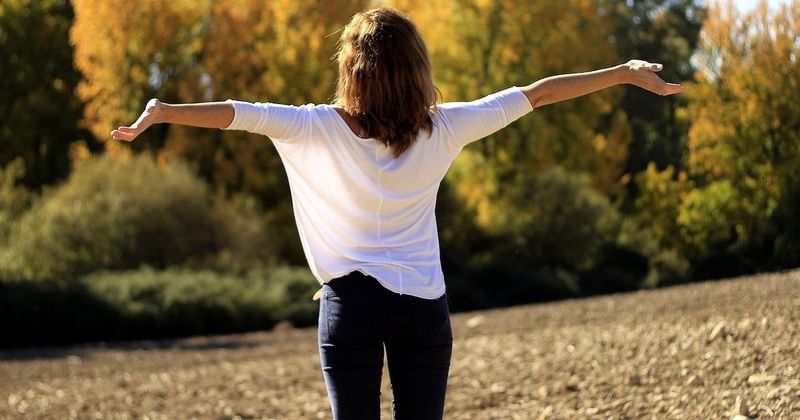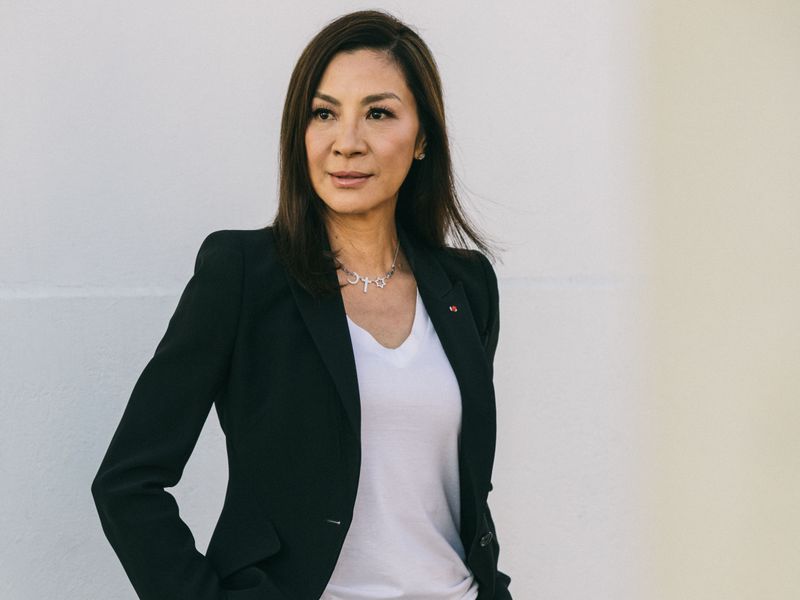20 Powerful Tips on How to Say No Without Guilt
For so many of us, “no” feels like a dirty word. We say yes to things we don’t want to do, overcommit ourselves, and then stew in resentment while smiling politely. But here’s the truth: every time you say “yes” to something that drains you, you’re saying “no” to your own peace, time, and energy.
I know, it’s easier said than done—especially if you grew up playing the “nice girl” role. Still, the more you practice, the less awkward it feels, and the more you start to value yourself.
There’s a strange mix of relief and fear the first few times you stand your ground, but trust me, it gets easier (and honestly, a little addictive). Ready to set yourself free? Here are 20 empowering tips to help you say no with confidence—and zero guilt.
1. Remember: “No” is a full sentence.

Ever notice how adding a big explanation to “no” almost always makes things messier? Just say it. That’s the magic. I used to overthink every decline, worried I’d look rude or cold. The truth? Most people accept a simple no, no questions asked. It feels wild at first, but it’s liberating.
Start with little things—like declining a group text invite—and you’ll see it’s a game changer. The first time I tried it, I half-expected a lecture, but all I got was a “No worries!” Sometimes, less is so much more. Of course, you don’t have to be icy.
A little smile, a nod, and a gentle “No” does the trick. You’re not a villain for protecting your time. You’re just showing yourself (and others) that you mean it when you speak. That’s real power.
2. Pause Before Answering

Someone puts you on the spot and you feel your heart racing, right? Here’s a secret weapon: pause. I used to blurt out yes before my brain caught up. Now, I let the question hang for a breath. That moment gives you control instead of panic.
You don’t owe anyone an immediate answer, no matter how much they pressure you. It’s perfectly fine to say, “Let me think about that.” I promise, your world won’t implode. I’ve saved myself from so many regretful commitments with this one tiny change. Those who respect you will wait.
Giving yourself space is not only smart, but it’s also respectful—to you. Taking a beat before answering means you’re making a choice for you, not just reacting. Try it next time—you’ll be amazed how much more confident you feel.
3. Replace Guilt with Gratitude

Guilt loves to sneak in when you say no. But what if you swapped it for gratitude? I started a daily habit: every time I declined something, I wrote down what that freed me up to enjoy. Maybe it was an hour of peaceful reading, or just space to breathe.
Suddenly, saying no felt like opening a door instead of closing one. There’s a real shift when you realize your time is precious and rare. Anyone who’s been burned out knows what I mean. Reframing your guilt into thankfulness is more than just positive thinking—it’s practical self-care.
You’ll notice you feel lighter, braver, even happier. And honestly, people pick up on that energy. Next time you say no, try listing three things you’re grateful for instead. It’s a simple habit that changes everything.
4. Practice with Low-Stakes Situations

True story: I started saying no to mall sample carts before I ever got brave enough to turn down bigger asks. It’s almost like training wheels for your boundaries. The stakes are low, and nobody will remember if you didn’t take the cheese cube.
Building up your “no” muscle in these tiny ways makes the bigger refusals so much easier. The first time I declined a coffee date I didn’t want, I felt like I’d just run a marathon—proud and kind of exhilarated. These little practice rounds remind you that the world doesn’t end when you stand your ground.
Plus, you get to see what it feels like to prioritize yourself, even in micro-moments. Don’t underestimate the power of small, steady steps. Each one builds your confidence for the moments that really count.
5. Use Phrases Like, “That Doesn’t Work for Me Right Now.”

There’s something magical about a phrase that’s both kind and firm. “That doesn’t work for me right now” is my all-time favorite. It’s polite, but also leaves no room for negotiation. When you use this, you’re not putting anyone down—you’re just stating your reality.
I’ve found people rarely push back when you’re this clear. There’s an art to making your boundary sound unshakeable, yet warm. I love how this phrase lets you exit guilt-free, with zero room for debate. It’s not an apology; it’s a self-respecting statement.
The best part? The more you use it, the more natural it feels rolling off your tongue. Give it a try in your next tricky conversation. You just might become the go-to boundary queen in your crew.
6. Ditch the People-Pleasing Mindset

Raise your hand if you’ve ever said yes to something just to avoid letting someone down. Guilty as charged! But here’s the deal: you are not responsible for everyone else’s happiness. That realization was both terrifying and freeing for me.
People-pleasing is sneaky—it feels selfless, but it actually erases you. When you catch yourself bending over backward, pause and ask: “Whose needs am I putting first here?” You deserve a vote in your own life decisions.
The sooner you let go of trying to keep everyone else comfortable, the lighter you’ll feel. Saying no isn’t mean; it’s about respecting your needs, too. Trust me, your true friends will love you just as much. You’ll feel an energy shift the moment you stop carrying everyone’s expectations.
7. Visualize Your Time and Energy as a Limited Resource

Here’s a weird but wonderful mental trick: think of your time and energy like a bank account. I had to learn the hard way that if I give out all my “funds,” I end up running on fumes. Would you hand your last twenty bucks to a stranger? I doubt it.
So why do it with your energy? When I started picturing my daily “budget,” I realized how quickly small yeses added up. Every “no” is like protecting your limited stash. It’s not stingy. It’s savvy.
Visual cues help, too—I even stuck a little hourglass sticker on my planner as a reminder. These small nudges keep you honest about what you can actually give. Try it and see how your decisions shift.
8. Delay Your Response If You’re Unsure

Ever been cornered by a last-minute request and blurted out yes? That was my specialty for years. But then I discovered the magic phrase: “Let me check my schedule and get back to you.” It’s a lifesaver. You don’t owe anyone instant answers, no matter how urgent they seem.
Taking a beat to consult your planner or just breathe helps you give a real answer, not a knee-jerk one. There’s so much power in buying yourself time. If someone pushes back, that’s a red flag.
A little delay gives you the chance to see it from every angle before you commit. You get to own your decision, instead of regretting it later. Make it your go-to. It’s a move that never fails.
9. Set Boundaries in Advance

Nothing beats the feeling of already knowing your limits before someone asks. It’s like future-you sent past-you a gift. The key is to decide how much time, energy, or resources you can give away ahead of time. Maybe Sundays are for you and your couch—no exceptions.
Or you’ve got a weekly “friend night” and guard it like treasure. These pre-set boundaries give you a script to lean on, so you’re not scrambling for an answer. I call it “decision insurance.”
It’s way easier to stick to your guns when you already know what you’re willing to offer. The bonus? You get to relax about surprises. You’re covered.
10. Don’t Invent Elaborate Excuses

Let’s be honest—making up a wild excuse is so tempting sometimes. I used to craft movie-ready stories just to avoid a simple no. But then the guilt (and anxiety) set in when I had to remember my own lies. Turns out, a straightforward “I can’t commit to that right now” is refreshingly easy.
Honesty really is the best policy here. You don’t owe anyone a plot twist. Being direct keeps things simple and builds trust. People may even appreciate your candor more than you expect.
Plus, you sidestep all the awkwardness if you’re ever questioned later. Simplicity is your friend. Try it once, and you’ll never go back to spinning tales.
11. Accept That Saying No Might Feel Awkward at First

Let’s be real: the first time you set a boundary, it might feel like you’re breaking some unwritten rule. That jittery, what-will-they-think feeling? Totally normal. I still remember practicing in my bathroom mirror, repeating “no” like a weirdo until it felt less scary.
Discomfort doesn’t mean you’re doing it wrong—it just means you’re learning something new. You’ll get braver with every try. That awkwardness is a sign you’re growing, not a reason to back down. The best confidence comes from surviving a few cringey moments and realizing you’re still standing.
Give yourself grace for being human. Before you know it, awkward turns into ease, and “no” becomes second nature. You’ve got this, I promise.
12. Flip the Script: Would You Want Someone to Say Yes Out of Obligation?

Here’s a little perspective shift: would you honestly want a friend to help you just because she felt obligated? Probably not. I realized I’d rather have a genuine “no” than a reluctant “yes.” It’s kinder. Playing this mental flip helps you see that saying no isn’t selfish at all.
In fact, it’s respectful—to you and the other person. When you ask yourself, “How would I feel on the other side?” you get clarity. It’s a simple trick, but it works every time.
This is about honesty, not people-pleasing. You set everyone free when you answer with your true feelings. Flip the script, and watch your guilt shrink.
13. Remember: You’re Saying No to the Request, Not the Person

Sometimes it’s easy to forget—saying no isn’t a rejection of the person, just the ask. I used to worry that declining meant I was letting someone down as a friend. But really, you’re just passing on a single opportunity, not banishing them forever. It’s a boundary, not an insult.
That’s a big difference. When you frame it that way, it feels a lot less heavy. Try saying, “I wish I could, but I can’t this time.” Most people appreciate honesty and will respect your answer.
And if they don’t? That’s more about their expectations than your kindness. Separate the request from the relationship, and you’ll find it much easier to stand your ground.
14. Give Yourself Permission to Rest

Raise your hand if you’ve ever felt guilty just for wanting a quiet night in. Been there. The truth is, rest isn’t a luxury—it’s non-negotiable. Sometimes, your only job is to refill your own cup. When I finally gave myself permission to rest, my whole mood changed.
Now, I block out downtime on my calendar like it’s an important meeting. And guess what? I show up for others better because I’m not running on empty. Self-care is a requirement, not a reward.
Saying no to one thing might be what lets you show up fully for what matters most. So grab those pajamas, light a candle, and stop apologizing for needing a break. You deserve it.
15. Keep Your Tone Warm but Firm

A warm tone changes everything. Saying no doesn’t require you to turn into a robot. I like to keep it simple: “Thanks for asking, but I can’t.” That’s it. No need for icy detachment or over-the-top politeness. You can respect yourself and the other person at the same time.
I’ve found a friendly voice paired with a solid boundary works wonders. You’ll be surprised how often people match your energy. A little kindness goes a long way and makes the whole thing less awkward.
Remember, you can care about someone and still say no—it’s not an all-or-nothing deal. Practice pairing warmth and firmness, and your boundaries will stick.
16. Expect Pushback—and Don’t Crumble

Not everyone will clap when you start setting boundaries, especially if you’ve always said yes before. The first time I said no, the pushback shocked me. But here’s what I learned: their surprise is about their adjustment, not your decision.
People may test your limits to see if you’ll cave. Stay steady. You’re not mean or unreasonable—you’re just changing the rules of engagement. Stand your ground, even if it’s uncomfortable. That’s how you retrain folks to respect your limits.
The more consistent you are, the less drama you’ll face over time. It’s about making your needs as valid as anyone else’s. Don’t crumble. You’re tougher than you think.
17. Say “Yes” Only When It’s a Full-Body Yes

Ever agree to something and immediately feel that sinking, “ugh, why did I say yes?” feeling? I call it the soul cringe. Now, I only say yes when my whole self lights up—a real, enthusiastic yes. Anything less is a no, even if it’s polite.
You deserve to feel good about your commitments. It took practice, but now I listen to my gut before agreeing. If my heart, mind, and body aren’t all in, I pass.
The payoff? So much more joy and way less resentment. Saying yes should feel exciting, not like a chore. Hold out for the moments that spark genuine happiness. That’s where the magic lives.
18. Stop Overexplaining

Once upon a time, my explanations were longer than the actual invitation. I’d go on and on, hoping to soften the blow. But guess what? The more you explain, the more your answer sounds up for debate.
I learned to keep it short—just a sentence or two, then move on. You don’t owe anyone a detailed play-by-play. It’s not rude—it’s efficient.
The best part? People adjust to your brevity. Life gets simpler, and your confidence grows with every quick, clear response. Next time you catch yourself rambling, pull it back. Sometimes less really is more.
19. Surround Yourself with People Who Respect Your Boundaries

The company you keep makes all the difference. Once I started saying no more, I noticed something fascinating: my people shifted. Friends who truly cared cheered me on, while those who only wanted a “yes girl” faded out.
It’s a little scary at first, but it’s worth it. You deserve a circle that celebrates your boundaries, not punishes you for them. When you’re around people who respect your “no,” you start feeling safer, more at ease.
That’s when you really find your voice. Don’t settle for anyone who makes you feel small for having needs. Your energy is precious—save it for the ones who get it.
20. Remind Yourself: Every “No” is a “Yes” to Yourself

Every time you say no, you’re actually making room for something amazing—your own priorities. I keep a sticky note on my mirror that says “yes to me” as a reminder. Saying no isn’t about what you’re turning down; it’s about what you’re inviting in.
Maybe it’s rest, creativity, or just a moment to breathe. Whatever it is, you get to choose. The more I practiced this, the more I realized how much happier and more fulfilled I felt.
You’re not missing out; you’re investing in yourself. Each no is a little gift to your peace and future. Keep that in mind next time the guilt creeps in.







